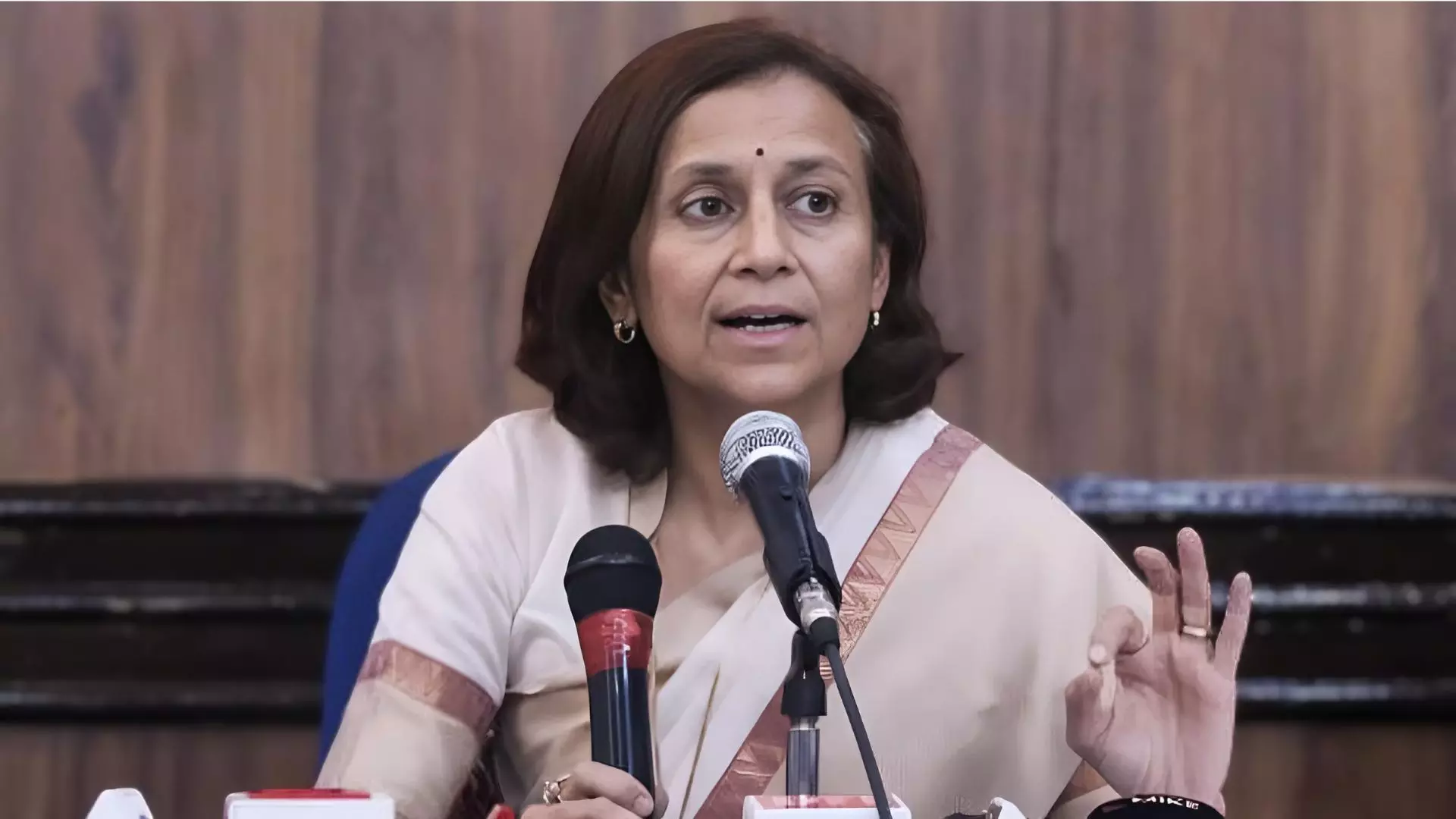
Sonam Wangchuk's wife Gitanjali Angmo explains why she left Ladakh to speak out, the essence of her husband’s demands, and why dialogue - not detention - is the only way forward.
Sonam Wangchuk’s wife speaks out: Why put him in jail instead of having a dialogue?
Gitanjali Angmo says Ladakh needs true democracy, not surveillance and silencing, as she defends Sonam Wangchuk’s peaceful struggle for statehood

The Federal spoke to Gitanjali J Angmo, wife of climate activist Sonam Wangchuk who was recently arrested under the National Security Act (NSA). In this candid conversation, she explains why she left Ladakh to speak out, the essence of her husband’s demands, and why dialogue - not detention - is the only way forward.
What made you leave Ladakh and come outside to speak?
First of all, there is no internet connectivity in the whole of Ladakh. Secondly, our movements were constantly being monitored. Every time I stepped out of my home, the police would ask where I was going and why. When media persons wanted to meet us, they were not allowed. That is why I decided to leave Ladakh, so that I could speak freely to people outside.
Also Read: Sonam Wangchuk's wife refutes 'anti-national' narratives, calls it a witch-hunt
There has been some debate around Sonam Wangchuk’s position on the abrogation of Article 370. How do you respond?
Sonam has never been driven by political narratives. He is an apolitical person who focusses on issues. Ladakh is a unique socio-cultural entity, very different from Jammu and Kashmir. That is why the people of Ladakh wanted a distinct identity, which was not possible under Article 370. Everyone in Ladakh welcomed its abrogation.
But for the last 40–50 years, there has also been a strong demand for democracy, for a legislature. When Article 370 was removed, Sonam expressed gratitude for the partial step, but he also said this was not enough. Without a Union Territory with legislature, or complete statehood, Ladakh’s issues will remain unresolved.
Why does Sonam insist on statehood or legislature for Ladakh?
Because policies made for Ladakh affect people who have lived there for thousands of years and will continue to live there. Unlike businessmen or politicians who come for a few years, the locals have deep indigenous knowledge systems. Yet policies are being imposed without considering the community’s needs.
Sonam is not against progress or development. He is simply saying that wrong policies have long-term consequences. Development cannot just mean big roads, factories, or industries - the Western model. Leaders like Mahatma Gandhi and Sri Aurobindo spoke about self-sufficiency and local democracy. Similarly, the people of Ladakh must be asked what kind of development they want.
Also Read: Ladakh administration denies ‘witch-hunt’ against Sonam Wangchuk
You mentioned that elected representatives and experts are being sidelined. What exactly is the concern?
Yes, local representatives and scientists are not being involved in policymaking. That is all Sonam is asking for - that in a democratic country, Ladakh too should function democratically. This demand is not new; it was even in the BJP’s manifesto. He is merely reminding the government of its own promise.
How do you view his arrest under the NSA?
This is not the way to treat someone who is raising democratic demands peacefully. If the government believes the current schedule or framework for Ladakh is better, then they should call Sonam for a dialogue. He is a rational man. If convinced that the new framework is in Ladakh’s interest, he will listen.
But instead of discussion, the government has put him in jail. Why? Is it because he argues with logic? If his arguments are weak, they can be countered. Putting him in jail shows fear, not strength.
Also Read: Leh Apex Body refuses talks with Centre, KDA demands Wangchuk's release
Have you been able to speak to your husband since his arrest?
No, not yet. I was told I would be allowed to speak to him, but that has not happened so far.
Now that you are in Delhi, what will be your next step?
The course of action will evolve as things move forward. For now, my priority is to make sure that Ladakh’s voice is heard, and that Sonam’s peaceful demands are not silenced through imprisonment.
(The content above has been transcribed from video using a fine-tuned AI model. To ensure accuracy, quality, and editorial integrity, we employ a Human-In-The-Loop (HITL) process. While AI assists in creating the initial draft, our experienced editorial team carefully reviews, edits, and refines the content before publication. At The Federal, we combine the efficiency of AI with the expertise of human editors to deliver reliable and insightful journalism.)

